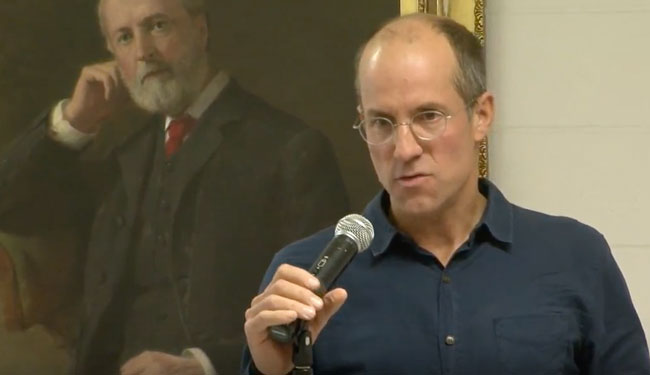McGill announced that they will refuse to divest from the fossil fuel industry for the third time on Jan. 8. Gregory Mikkelson, a professor in the School of Environment and Department of Philosophy at McGill, resigned as a result of the school’s continued investment in coal, oil, and gas companies. Though an impressive action in protest of McGill’s refusal to divest, Mikkelson’s use of his privilege sets a precedent that is hard to follow for others in the community. By resigning, Mikkelson has deemed his own personal moral comfort more important than that of the students and overall community he was working alongside.
Mikkelson’s actions succeeded insofar as he drew media attention to the situation at McGill. As a result of his resignation, the McGill community put additional pressure on the administration to defend their position on fossil fuels and acknowledge comments made to the media. Ethically, Mikkelson’s notion that, as a professor of environmental studies, he could no longer work somewhere that ignored the values he and his students hold is understandable.
However, the question remains of whether a different method of protest could have been used to utilize his privilege and power in an academic space. It is not possible to determine whether the media attention received from his resignation will have more of an impact on the Divest McGill movement than if he had continued in his efforts as a professor.
Just as he intended, Mikkelson’s resignation sent ripples through the McGill community, but there is a level of privilege that comes with being able to leave your job that needs to be acknowledged. Few members of the McGill community would be able to leave the institution in response to a moral dilemma. The majority of students and professors have no choice but to stay and be part of the extremely frustrating fight against McGill’s investment in fossil fuels. There are countless groups in the community that have had to work tirelessly for what they deserve, and none had the option to quit as a final hurrah of protest. For example, social work students continue to protest against the 800 hours of unpaid field placement work they are required to do for their degree. These are difficult issues that require continued commitment.
Those involved with Divest McGill acknowledge that Mikkelson is a driving force in the academic conversation surrounding the university’s investments and the ethical issues that arise from being paid by an institution that goes against one’s core beliefs. By quitting, he has removed himself from his position and, though he has vowed to keep helping Divest McGill in an unofficial capacity, his absence from the academic conversation is something he cannot make up for. Mikkelson knowingly removed his voice as an educated white male, one of the loudest and most privileged voices, from the fight for divestment specifically in the academic space. There is no pretending that this will benefit the movement. If this becomes the new precedent set for professors, nobody will be left to support the student movement for divestment.
Mikkelson held an extremely valuable position of power in terms of his ability to criticize the administration’s choices and, in giving up this position, he has removed one of Divest McGill’s most important actors on the inside, making the struggle for divestment that much harder.
This should cause McGill to reexamine their actions and to what extent it affects their community, Mikkelson has also put the burden on his fellow faculty members to take over what work he has done and move beyond his resignation. Though this may have been the best move for Mikkelson’s conscience, the fight is far from over, and he may have caused more harm to the on-campus fight for divestment than good.









I’m sorry, but WHAT??? I mean I guess your argument is technically correct, but I think you’re kidding yourself if you think that Prof Mikkelson didn’t consider all of this when he made his decision. This is a man who is truly dedicated to the cause, and I’m pretty sure part of the reason he made this decision was because he thought it would have more impact than what he had been doing previously
This is bizarre speculation and whataboutism of the worst kind. Completely meaningless article. I keep trying to go point by point but essentially there is not even an argument here.
This “to be sure” paragraph undercuts any purpose whatsoever
“the question remains of whether a different method of protest could have been used to utilize his privilege and power in an academic space. It is not possible to determine whether the media attention received from his resignation will have more of an impact on the Divest McGill movement than if he had continued in his efforts as a professor. ”
One thing we can know for certain is, through three attempts to get McGill to divest, working from inside the institution has not worked. To me, that suggests a change of tactics is in order. But I’m most just mad about the god-awful rhetoric on display here.